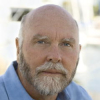Craig Venter

Craig Venter
John Craig Venteris an American biotechnologist, biochemist, geneticist, and entrepreneur. He is known for being one of the first to sequence the human genome and the first to transfect a cell with a synthetic genome. Venter founded Celera Genomics, The Institute for Genomic Researchand the J. Craig Venter Institute, and is now CEO of Human Longevity Inc. He was listed on Time magazine's 2007 and 2008 Time 100 list of the most influential people in the world. In 2010, the...
NationalityAmerican
ProfessionScientist
Date of Birth14 October 1946
CountryUnited States of America
Craig Venter quotes about
Privacy with medical information is a fallacy. If everyone's information is out there, it's part of the collective.
'Bloomberg's, you know, for people who don't use the service, provides through the Internet - through specialized computers - information about the financial world. It's a very large data base. I think they have on the order of a billion dollars or more a year in revenue.
Cells will die in minutes to days if they lack their genetic information system. They will not evolve, they will not replicate, and they will not live.
Since my own genome was sequenced, my software has been broadcast into space in the form of electromagnetic waves, carrying my genetic information far beyond Earth. Whether there is any creature out there capable of making sense of the instructions in my genome, well, that's another question.
The photosynthesis we see with plants is not very efficient. Algaes are more efficient.
When you do cross-breeding of plants, you're doing this blind experiment where you're just mixing DNA of different types of cells and just seeing what comes out of it.
When most people talk about biofuels, they talk about using oils or grease from plants.
We said that once we had finished sequencing the genome we would make it available to the scientific community for free, ... And we will be doing that on Monday morning at 10am.
The environment has fallen to the wayside in politics.
Most drugs work on only about a third of the population, they do no damage to another third, and the final third can have negative consequences.
Any virus that's been sequenced today - that genome can be made.
It is my belief that the basic knowledge that we're providing to the world will have a profound impact on the human condition and the treatments for disease and our view of our place on the biological continuum.
We have learned nothing from the genome.
Moving forward in science is as much unwinding the distorted thinking of the past as it is putting a clearer idea on the table.